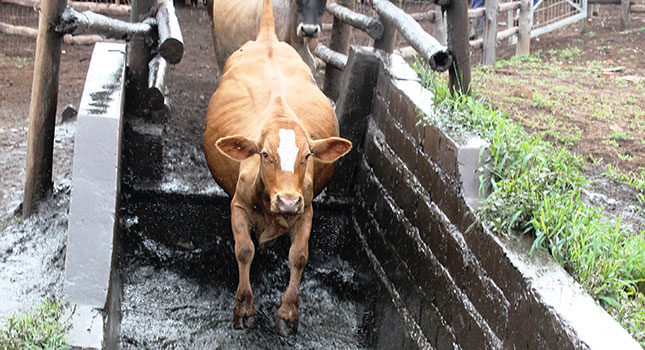By Ndumiso Tshuma
A recent livestock assessment conducted by agricultural experts has revealed alarming trends in animal mortalities and an increase in tick-borne diseases, particularly affecting young weaners.
Further investigation uncovered that improper dipping techniques employed by farmers are the primary drivers of these troubling issues.
Nqobani Manyabi, an animal science specialist at El Ganado Consultancy, highlighted that some farm personnel have resorted to using a single 16-litre knapsack sprayer to treat both cattle and multiple goats. This misstep has resulted in critical problems, including suboptimal chemical dosage.
“The inadequate amount of chemicals used during the dipping process fails to provide effective parasite control, leaving livestock vulnerable to disease. Improper dipping practices allow parasites to thrive, further exacerbating health challenges within the herd,” Manyabi explained.
Additionally, Manyabi pointed to an increase in tick-borne diseases, stressing that neglecting proper dipping techniques has heightened the prevalence of these illnesses, severely compromising animal welfare.
“The combined effect of these factors has led to significant cattle and goat fatalities. The financial impact has been devastating, with farmers losing thousands of dollars. This situation underscores the importance of closely scrutinising even the simplest farming practices,” he said.
To prevent such costly mistakes in the future, Manyabi urged farmers to adopt proactive measures, including regular monitoring and evaluation of farm practices.
“Ongoing assessments help identify problems before they escalate into major issues. Equally important is ensuring proper training for farm staff. Educating them on correct dipping techniques and the appropriate chemical dosages is critical,” he advised.
Manyabi also emphasised the need to use accurate chemical dosages and application methods.
“Consistency in applying the correct amounts ensures effective parasite control and promotes animal health. By adopting these practices, farmers can protect their livestock and safeguard their investments against the hidden costs of neglecting proper techniques,” Manyabi concluded.

